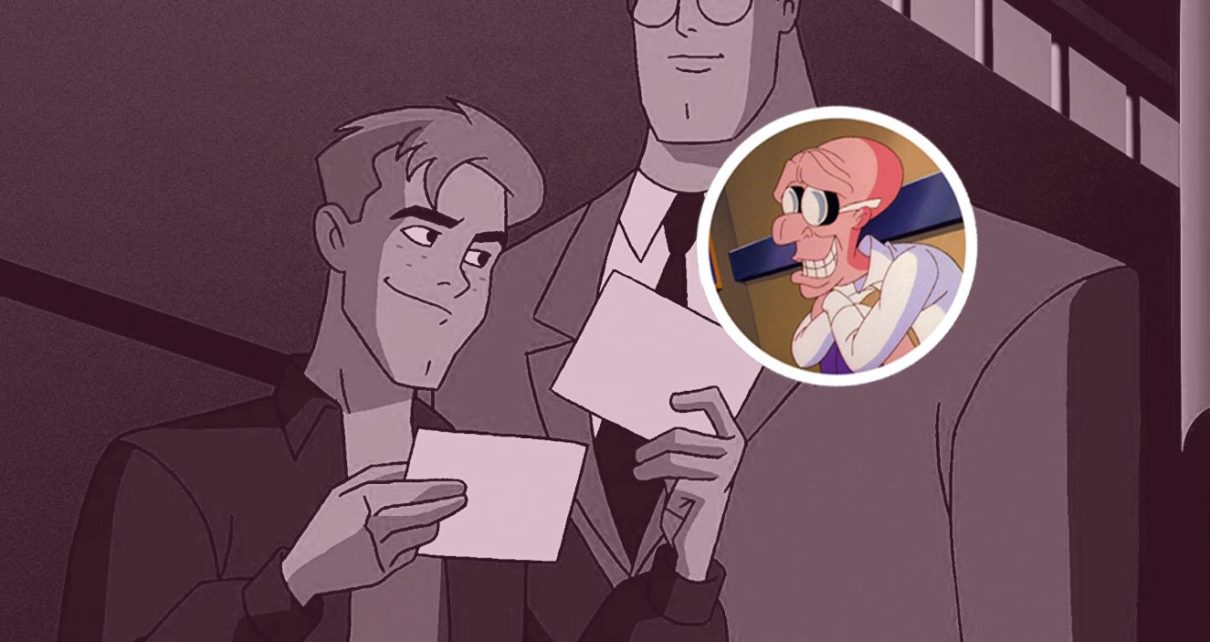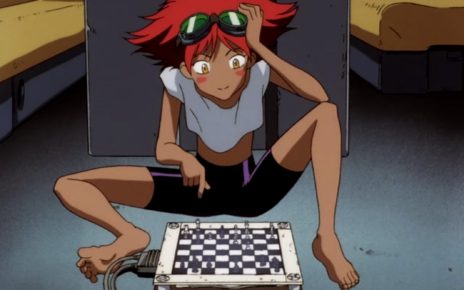Welcome to Ask Scratchy, a monthly column in which the Animaniacs’ top psychiatric mind answers the tough questions for cartoon characters from the four corners of the Earth. To submit a question, email the good doctor at askscratchansniff@gmail.com.
Dear Dr. Scratchansniff,
I work at my dream job right now: The Daily Planet. I’ve wanted to be a photographer since I was a kid, and now I’m really doing it, right alongside their best and brightest. And while I’ve been working there, their best and brightest have become my closest friends. They understand the daily journalism grind, the rising Metropolis rents, and the increased need for side hustles. They’re great to talk to about my career goals and dreams.
So those are my close friends. With my best friend though, things are a little…different.
See, I’m best known for my photos of this friend, and he’s someone kinda famous. (Red cape, pretty much invincible, giant S on his chest. Yeah, that one.) Anytime I post photos of him, I get tons more likes and comments than any of my other images. I mean, he’s great. Of course he is. He’s fighting evil all over the galaxy. Even on a smaller level, he’s always looking out for me: getting me out of scrapes, sometimes literally showing me different parts of the universe, saving my life. So I feel like I can’t complain: our city is still standing because of him, I’m still alive because of him. And yet…I never asked to get caught up in the middle of his intergalactic affairs. I mean, you think you’re just befriending your normal everyday superhero, and then all of a sudden, your normal life gets turned upside down. And for what?
Yeah, everyone knows me as his “Best Friend.” And that’s a title that I hold proudly most of the time. But does he know me at all? We’ve never talked about that time I had to cancel a freelance gig because I accidentally ate a galactic super fruit that turned me into an octopus. Or the incident involving the full moon and the complete and total destruction of my furniture. Or that time that intergalactic dictator kidnapped me and…well, I haven’t been able to sleep much since. And what do I get for all of this? He comes in just in time to save me, smile, gives me that signature chuckle, and sets me back on my feet. Never once a question about my job, or how I’m saving up to buy a new couch, or even how I’m doing. I’m grateful, of course, but I’m also starting to become a little resentful.
Dr. Scratchy, how do I tell my best crime-fighting superhero friend that what I need is just for him to be my best friend?
Sincerely,
Simple Union Photographer Examining Super Best Friend
Guten tag, SUPESBF
Your friend might be a superhero, but from your letter I get the sense that you think he’s a less-than-super friend. Sure, your SuperFriend has taken you on some cool trips and saved your life a few times (though I’m pretty sure that’s the ethical responsibility of anyone who styles themselves as an intergalatic superhero), but does he really know you? And if he does, does he really care?
Ideally, our friends (especially the ones we bestow the title of “best” upon) are caring and supportive; honest but not too harsh; there for you when you need them and scarce when you need time alone. Our best friend, in theory, is the softest shoulder to cry on and the fiercest defender in the galaxy. They can cheer you up even when doom is knocking at your door. Of course they could do all of this (and more); you’d do the same for them!
But is it realistic to set such high expectations for your best friend? Probably not. Ideal friendship isn’t always possible in the real world. We all have competing and often stressful priorities — work, school, relationships — that are often interrupted by major life events. Some of us are interrupted by things like needing to move or losing a loved one; others are interrupted by a super genius businessmen turned scientist turned criminal trying to take over the world. Six of one, half a dozen of the other.
Before you take any action to improve your relationship with your SuperFriend, you need to ask yourself what you want from this friendship? What are your friendship non-negotiables and what are you willing to compromise? And are your non-negotiables things that your SuperFriend could even do for you?
Don’t get me wrong: you have very legitimate concerns about your friendship. At this point, and this may hurt to hear this, it seems like you’re more of a sidekick to your SuperFriend than a best friend. It’s worth considering, though, why he’s thus far failed to take an interest in your personal life or to consider your needs before his own. In other words, what are the factors that make your SuperFriend treat you the way he does?
Now, I don’t mean to compare myself to a superhero or anything, but I do have some sense of how your friend might be feeling. As I’ve discussed before, people who work with other people — especially those who are crisis responders or those who help people process traumas they’ve experienced — can suffer from compassion fatigue. Perhaps your SuperFriend is physically and emotionally exhausted after a hard day’s work of saving humanity from intergalactic threats. Maybe he has every intention of asking you about your day when you two go out for happy hour, but by the time he gets there he’s too tired, preoccupied, or anxious to remember. People tend to trust that the people closest to us will understand us and love us unconditionally. And sometimes this kind of implicit trust can lead us to unintentionally act like uncaring jerks toward the people we love the most. In some ways, if your SuperFriend is suffering from compassion fatigue, you could take his subpar friendship as a compliment. He loves and trusts you and he feels comfortable showing you just how much he’s struggling. But neither compassion fatigue nor unconditional love are excuses for bad friendship. At the same time, knowing where your SuperFriend might be coming from could lead you to feel more empathy for your friend, which will help you effectively communicate and compromise when you choose to do so.
Before we get to the specifics of how to talk to your friend though, there’s one more important factor to consider: your SuperFriend’s culture. Not to be rude here, but is your SuperFriend even human? As far as I know, humans have yet to develop more than rudimentary space travel. And I definitely have never encountered a fruit that could turn me into an Octopus (or any sea creature for that matter). If you can, try to do some research on what friendship looks like in your SuperFriend’s culture. What is expected of a friend? How do friends behave, communicate, interact? Does his cultural concept of friendship align with yours, and if not, is it possible to bridge that gap in a way that feels natural and comfortable to both of you?
Once you’re done with all of that introspection and research, SUPESBF, you’ll be ready to talk to your SuperFriend about what you need from him. Your DEAR MAN skills, which I wrote about here, are going to come in handy. You might also choose to use another one of Dialectical Behavior Therapy’s (DBT) communication skills to talk with your friend, like GIVE or FAST. GIVE, which is an acronym for gentle, interested, validate, and easy manner, will make your friend feel supported and cared for during a difficult conversation. FAST, which stands for fair, (no) apologies, stick to values, and truthfulness, will help you effectively negotiate without sacrificing your friendship non-negotiables.
If you can balance your empathy for your friend with your own friendship needs, you will improve your friendship with your SuperFriend and gain a sense of self-efficacy and respect in your relationships going forward and das, SUPESBF, ist gut.
Jimmy Olsen’s Ask Scratchy question was submitted by Carly Piersol.
Ask Scratchy is for educational and entertainment purposes only. Although the character Dr. Scratchansniff is modeled after two psychoanalytic luminaries, Sigmund Freud and Otto Kernberg, this column is not intended to be a substitute for professional medical advice, diagnosis, or treatment. Always seek the advice of your physician, mental health professional, or other qualified health provider with any questions or concerns you may have regarding a medical condition.
Thanks for reading The Dot and Line, where we talk about animation of all kinds. Don’t forget to follow us on Twitter and sign up for our newsletter.





